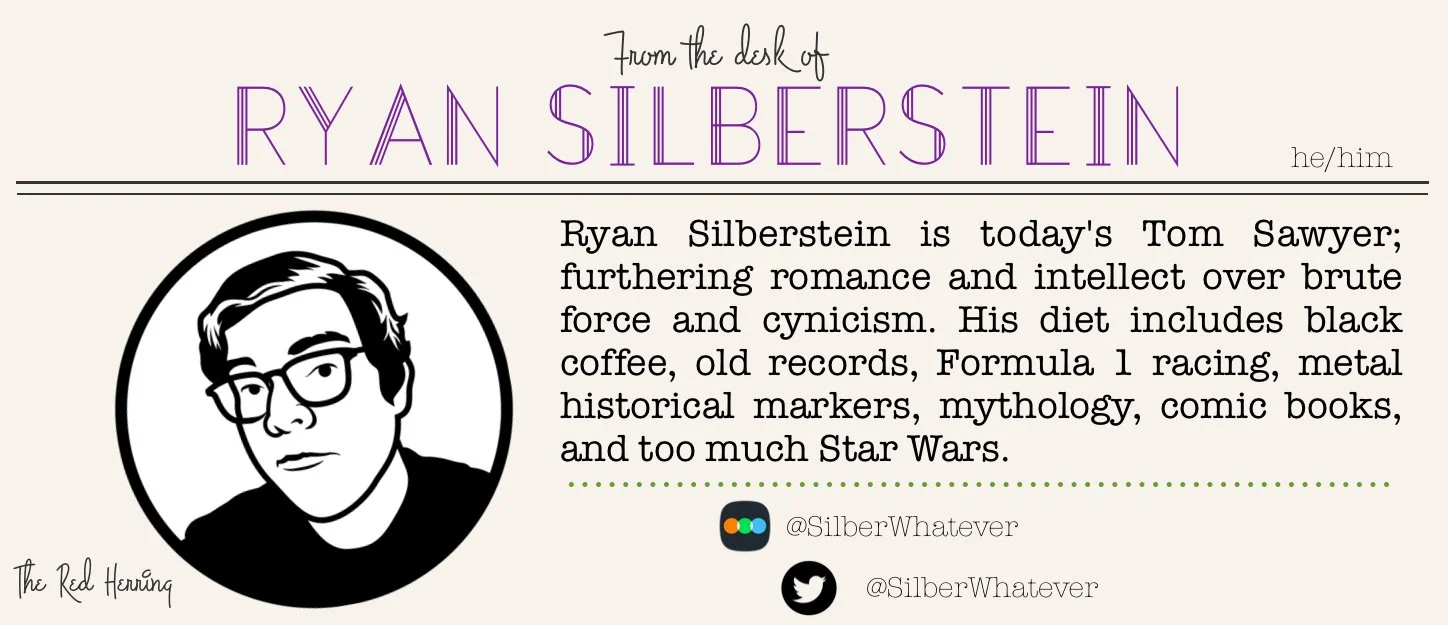Impressively shallow MY NAME IS ALFRED HITCHCOCK is neither illuminating or insightful
My Name is Alfred Hitchcock
Written and Directed by Mark Cousins
Narrated by Alistair McGowan
Unrated
Runtime: 2 hours
In theaters October 25
by Ryan Silberstein, Managing Editor, Red Herring
While being incredibly prolific, Northern Irish documentarian Mark Cousins is most well-known in the United States for his two massive film survey projects. The Story of Film: An Odyssey (2011) is a 15 hour journey through the history of film and was mostly well-received, and Turner Classic Movies (TCM) even garnered a Peabody Award for their programming in conjunction with its original airing on their network. His 14 hour followup, Women Make Film: A New Road Movie Through Cinema (2018), attempted to rectify his omissions in The Story of Film but presented the material in a thematic, not a chronological or contextual, view. Personally, I made it through the first three episodes of The Story of Film because Cousins’ sleepy narration made me feel like I would rather be reading a book, and I never got around to Women Make Film (2018), but Fiona’s review here at MovieJawn suggested I would struggle with that one as well.
But when My Name is Alfred Hitchcock came along, I decided to give Cousins another chance (once I determined that he was not the narrator of this film). I will not be giving Cousins any more chances. My Name is Alfred Hitchcock is frankly an embarrassing exercise when taken as a whole, offering baffling choices and severely limited in its outlook.
First, the most bizarre choice: Cousins has written this entire film as if it is Alfred Hitchcock speaking to us from beyond the grave, with Alistair McGowan providing a (serviceable) impression of the legendary director. Did you ever want to hear Hitch talk about 5G phones? Now is your chance! Giving Cousins the benefit of the doubt, one could say that using the director’s familiar voice is a way to channel his spirit into this retrospective of the man’s career. If McGowan was impersonating Hitchcock’s voice while reading from the man’s letters or interviews in a Ken Burns fashion, I would not have a problem with it. But no part of this documentary actually contains Hitchcock’s own words. Rather, Cousins is attempting a sly trick on the audience: intellectual laundering, allowing Cousins to wash his own ideas through a dead man’s voice.
I could maybe look beyond this approach if Cousins had anything truly insightful to say about Hitchcock or his films, but the film pales in comparison to the many great video essayists working on YouTube and/or Nebula, like Patrick H. Willems, Defunctland, Nerdwriter1, Every Frame a Painting, and Lessons From the Screenplay. Cousins has assembled his essay into themes, taking the audience through Hitchcock’s filmography by breaking them into thematic elements but is severely limited by his choice to use his deceased subject as a sock puppet and Cousins’ own ardently auteurist point of view. While eventually Alma Reville and Edith Head are both named as collaborators, not a single specific contribution is named, giving the impression that Hitchcock’s movies emerged from his own head fully-formed, like Athena from Zeus. There is little cultural context, no look at any of the actors or writers who worked with him, and nothing to say of the public or critical reaction to the man’s work. Auteur theory is a useful tool for film analysis, but, if it is the only lens used, then every choice looks like it was solely that of the director. When all you use is a hammer, everything is a nail.
I’ve sat through a lot of boring lectures in my life, and Hitchcock is far more fun–and far more complicated of a figure–than depicted here. This is rudimentary hagiography. If you just want to spend time with the director himself, the best thing I can say about My Name is Alfred Hitchcock is that it made me want to revisit Hitchcock’s films and seek out the ones I have yet to watch. For further recommendations, I’ve been watching a lot of Alfred Hitchcock Presents lately, but the man’s own intros and outros for those stories offer more insight into his personality in less than 5 minutes per episode than Cousins can offer in two hours.



